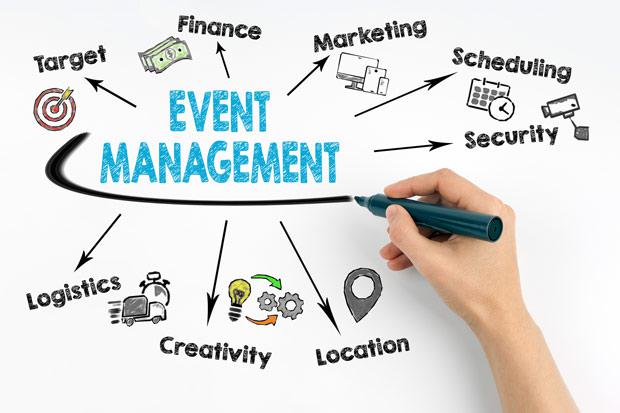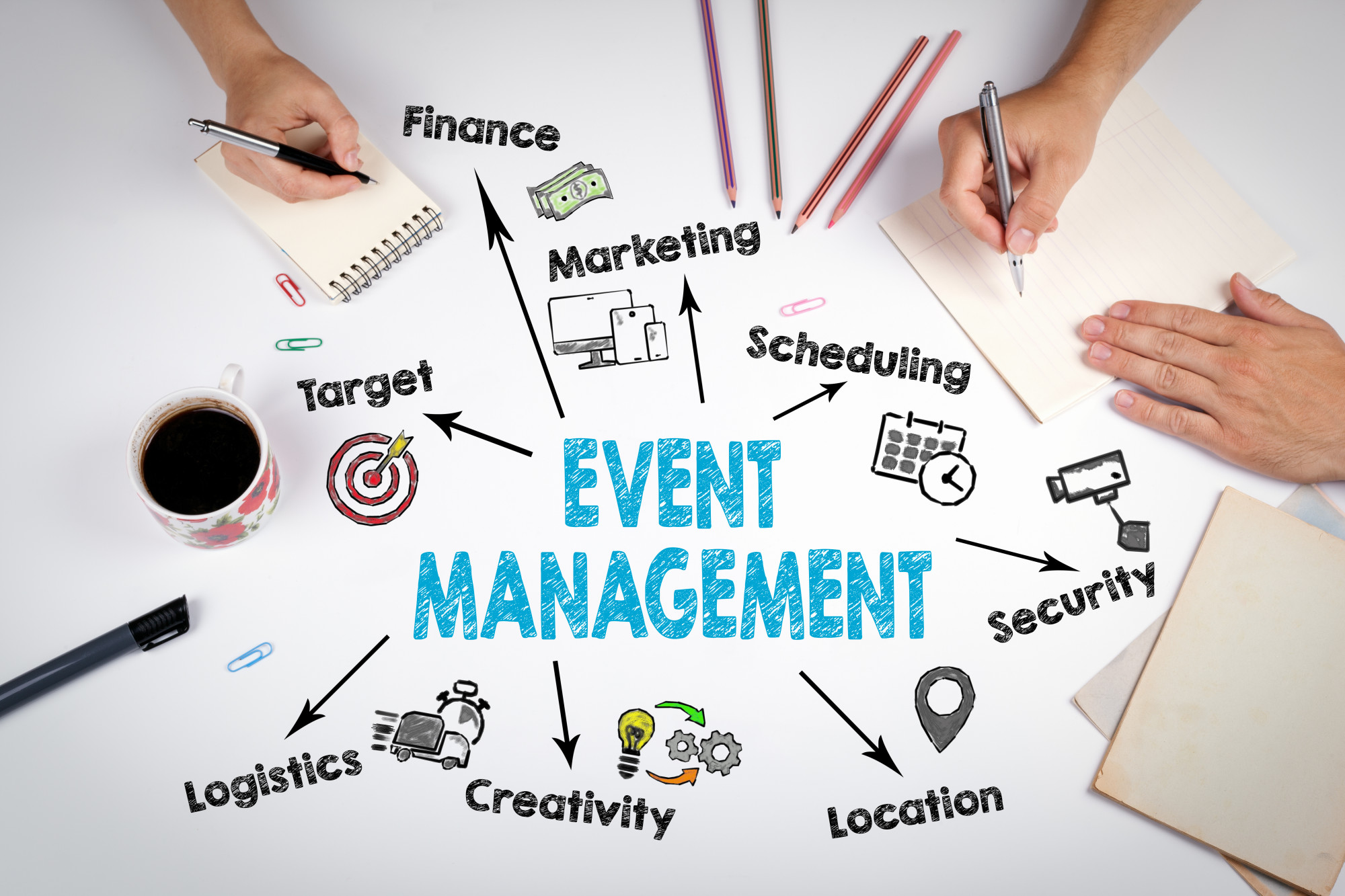A Deep Dive Into Just How Event Management Works to Develop Unforgettable Experiences
Event management is a complex discipline that combines various elements to craft unforgettable experiences. It needs a clear understanding of the event's function and target market. Coordinators have to navigate budgeting, logistics, and advertising and marketing to guarantee a seamless execution. Each component plays an essential role in achieving the wanted influence. The trip does not end with the event itself. There are insights to discover that can form future endeavors.
The Fundamentals of Event Management
Effective event management includes a variety of important concepts that direct the preparation and execution of successful events. At its core, it includes recognizing the event's function, audience, and preferred outcomes. Identifying the target demographic is crucial, as it notifies decisions connected to material, marketing, and logistics.
Budgeting is an additional essential facet, assuring that sources are designated effectively while fulfilling the event's goals. This consists of planning for unexpected expenditures that may occur.
Time management plays an essential role, as event supervisors need to create a detailed timeline to collaborate numerous jobs and turning points.
Additionally, reliable communication amongst stakeholders, vendors, and employee is vital to guarantee alignment and avoid misunderstandings.
Lastly, danger management need to be taken into consideration, with contingency strategies in position to address potential challenges, therefore enhancing the total experience for participants and ensuring a seamless execution of the event. (charlotte event companies)

Trick Roles in Event Preparation
In event planning, understanding vital duties is important for effective execution. The event coordinator is accountable for overseeing logistics and making certain all aspects straighten with the vision. In addition, effective supplier management is vital for maintaining high quality and promoting solid collaborations throughout the preparation process.
Event Organizer Obligations
An event coordinator coordinates the complicated elements of event planning, guaranteeing seamless execution from fertilization to conclusion. They are in charge of conceiving the event motif, establishing spending plans, and producing timelines to keep the project on track. Sychronisation with stakeholders, including clients, location managers, and volunteers, is important to straighten expectations and assist in interaction. The planner also oversees logistics, such as catering, transportation, and innovation requires, making certain all parts function sympathetically. They perform site sees, manage routines, and troubleshoot problems that may occur throughout the event. Post-event, the organizer reviews the event's success, collecting responses and evaluating results to notify future projects. This diverse role calls for solid organizational abilities, interest to detail, and reliable interpersonal communication.
Vendor Management Fundamentals
Guiding via the landscape of supplier management is vital for effective event preparation. Efficient supplier management includes recognizing, choosing, and collaborating providers that supply essential solutions, such as wedding catering, audiovisual support, and design. Event coordinators must preserve strong communication with suppliers to assure that all elements straighten with the event's vision. Key roles include the vendor manager, that looks after agreements and negotiations, and the logistics planner, liable for on-site configuration and execution. It's vital to develop clear expectations and timelines, fostering a joint environment that enhances the total experience. By prioritizing these elements, event planners can browse possible challenges, guaranteeing that every detail adds to a smooth and memorable event.
Crafting a Vision: Idea Advancement

As soon as a vision is established, it ends up being necessary to translate it right into workable parts. This includes defining the environment, my link picking appropriate venues, and figuring out the event's design. Collaborating with stakeholders, consisting of sponsors and partners, even more improves the principle, guaranteeing that all celebrations share a linked understanding of the event's objective. Eventually, a well-developed vision not only improves guest interaction yet likewise sets the stage for unforgettable experiences that reverberate long after the event concludes.
Budgeting and Resource Appropriation
With a clear vision in position, the following action in event management entails mindful budgeting and source appropriation. This vital phase assurances that all needed elements find this are funded and lined up with the event's objectives. Event managers start by approximating prices related to location choice, food catering, home entertainment, and marketing. They develop a thorough budget plan that describes each classification, permitting transparency and accountability.
Resource allocation extends beyond financial resources; it likewise encompasses personnels. Recognizing team roles, responsibilities, and timelines is vital to ensure efficiency. Event supervisors need to also take into consideration backups for unexpected expenditures or modifications in extent, developing a buffer within the budget plan.
Prioritizing spending on aspects that enhance visitor experiences is essential. By purposefully designating resources, event supervisors make best use of effect while maintaining monetary control. This disciplined method not only cultivates successful occasions but also develops trustworthiness and depend on with stakeholders and participants.
Logistics: The Backbone of Event Implementation
While budgeting lays the foundation for an event, logistics act as its backbone, guaranteeing that every element is performed efficiently and efficiently. charlotte event companies. This encompasses a vast array of tasks, including location option, transportation plans, and tools purchase. Reliable logistics management calls for precise planning and control to assure that all aspects line up with the event's timeline and purposes
Trick elements of logistics include stock management, where materials and products are tracked to protect against shortages, and staffing, which involves recruiting and training workers to manage different jobs. Interaction is additionally important, as it promotes cooperation among vendors, enrollers, and the event team.

Marketing and Promo Approaches
Reliable advertising and marketing and promo methods are important for taking full advantage of presence and involvement at an occasion, as they create passion and exhilaration amongst possible individuals. Event supervisors utilize a mix of standard and electronic advertising and marketing methods to reach their target audience. Social media site systems, e-mail campaigns, and targeted ads are typically used to produce buzz and foster community interaction. Cooperations with influencers or sector leaders can improve trustworthiness, while engaging content such as video clips and testimonies can reverberate with potential participants.
In enhancement, leveraging event-specific hashtags and producing shareable graphics encourages natural promotion among participants. Early bird ticket offers and unique promotions can incentivize enrollment, furthermore increasing passion. A well-designed website that uses easy navigating and clear information concerning the go to website event can improve the user experience. By implementing these advertising and marketing and promo strategies, event managers can assure greater presence and eventually develop an unforgettable experience for all individuals.

Measuring Success: Comments and Assessment
Success in event management pivots on durable responses and examination mechanisms. These processes are crucial for identifying the efficiency of an event and identifying locations for enhancement. By collecting input from guests, organizers can assess satisfaction degrees, comprehend preferences, and determine general influence. Surveys and meetings function as beneficial tools for gathering measurable and qualitative data, enabling comprehensive evaluation.
Additionally, assessing vital performance indicators (KPIs) such as participation prices, engagement levels, and roi (ROI) provides a clearer image of event success. Post-event debriefing sessions with the preparation team also contribute understandings, promoting a culture of continual renovation.
Ultimately, a methodical technique to responses and evaluation not only improves future events however additionally enhances connections with stakeholders. By carrying out these techniques, event supervisors can produce unforgettable experiences that resonate with participants and drive ongoing involvement.
Often Asked Concerns
Just How Do Event Managers Deal With Unexpected Challenges Throughout an Event?
Event managers attend to unexpected challenges by continuing to be calmness, evaluating the situation, and applying contingency strategies - charlotte event companies. They communicate properly with their group, adapt rapidly, and focus on solutions to guarantee the event continues efficiently and efficiently
What Modern Technology Devices Are Crucial for Modern Event Management?
Important innovation devices for modern event management consist of event enrollment software application, job management applications, participant interaction systems, and analytics devices. These sources enhance processes, enhance interaction, and enhance overall event experiences for coordinators and individuals alike.
How Do Social Distinctions Impact Event Preparation and Execution?
Social differences greatly affect event planning and execution. They influence styles, customs, interaction styles, and assumptions, requiring customized methods to guarantee inclusivity and regard, eventually shaping the overall experience and success of the event.
What Are the Ethical Considerations in Event Management?
Honest factors to consider in event management incorporate openness, sustainability, social sensitivity, and inclusivity. Planners must prioritize justness, respect varied audiences, lessen environmental effect, and guarantee accessibility to develop liable and unforgettable experiences for all participants.
Just How Can Sustainability Be Integrated Into Event Planning?
Sustainability can be integrated right into event planning by utilizing green products, reducing waste, sourcing local vendors, carrying out carbon offset programs, and promoting electronic remedies to decrease paper use, therefore enhancing environmental awareness within the event's structure.